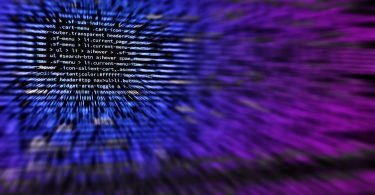There is a wealth of information out there available to us at the touch of a button, whether it be on our laptops, tablets or phones and this has made it increasingly easy to get instant answers to our questions, but do we consider the source of these answers? In a world where everyone is increasingly rushed off their feet, do we have time to think about how credible websites like Wikipedia are? Admittedly we should consider this, but as a population I don’t think we do. As a postgraduate scientist, I have learnt the hard way- that every single source counts and its credibility is paramount, but I also cannot deny that Wikipedia has been of great use to me.
Throughout my undergraduate degree the strict advice from lectures was never to use Wikipedia, but as soon as I went to work in a laboratory for my placement year the first piece of advice I got was to use it to obtain a basic understanding of otherwise difficult topics. But how could I be sure what I was reading was accurate?
It is the go-to source for information
It is becoming more apparent that sources such as Wikipedia are our go-to websites for quick information. It’s difficult not to use Wikipedia as it is often the first web link that appears on most Google searches. The recent outbreak of Ebola has highlighted our reliance on Wikipedia for information. However, how can we know what we are reading is true? Wikipedia has a stigma attached to it and is deemed as unreliable, I have certainly read some nonsense on there! But let’s blow some common myths out of the water: It cannot be easily edited by just anyone and in many circumstances, for science and medical pages, they are watched closely and edited by professionals to ensure the clearest information is given to the public. But arguably this isn’t enough as there is still plenty of rubbish out there. To fully trust a source, we ideally need to know it has been written by someone with extensive knowledge in the field, especially in the case of Ebola when so many people are concerned about the disease. Maybe then Wikipedia could alter its approach? So many people rely on it for information, so they may have a duty to the public to ensure it provides the best information.
On the flip side, in many cases, articles on Wikipedia regarding science and medicine are clearly referenced and many of these references are from peer reviewed journals, making the information very credible. But more articles need to adopt this idea. The simplicity of Wikipedia ensures that even complicated subjects can be understood by a wide audience. This opens it up to being a ‘go-to’ source for information! But is it the future?


Maybe it isn’t so much that people overuse Wikipedia, but more so that they do not know where else to look for the information that is available to them. It has been noted that at key events in the recent Ebola outbreak, more people head to Wikipedia (3.5 million) for their information instead of more credible government organisations such as the WHO or the Mayo Clinic. The information on these websites is actively updated by experts in the field, whereas Wikipedia is only sometimes monitored by specialists. I know where I would rather get my information from! However, we all know that the majority of the time, we click on the first link our search engine gives us, which usually turns out to be Wikipedia. Even on a recent Google search, I found that Wikipedia appears just above the WHO. This ultimately makes it difficult to know where to source our information from.
Misinformation that may be obtained from sources such as social media like Twitter or Facebook and to a certain extent, Wikipedia has the potential to cause panic within a population, especially when it comes to outbreaks of diseases like Ebola. A lack of understanding leads to a worldwide panic. But people forget that Ebola has been circulating within populations for years and has been relatively poorly documented until now.
Is Wikipedia the future for credible medical information?
I do not believe so. It is a quick and easy way to source information for basic understanding, but what you read should be taken with a pinch of salt, unless you cross reference it with a more credible source. In which case, head straight to a government funded source such as the WHO or the Centre for Disease Control and Prevention. There is no doubt that Wikipedia is going to be the ‘go-to’ website to avoid science jargon but it will never be truly credible unless the way the articles are written changes. If Wikipedia got professionals involved to write or edit the articles then maybe it would become the future source for quick, easy and credible information to educate the general public.









